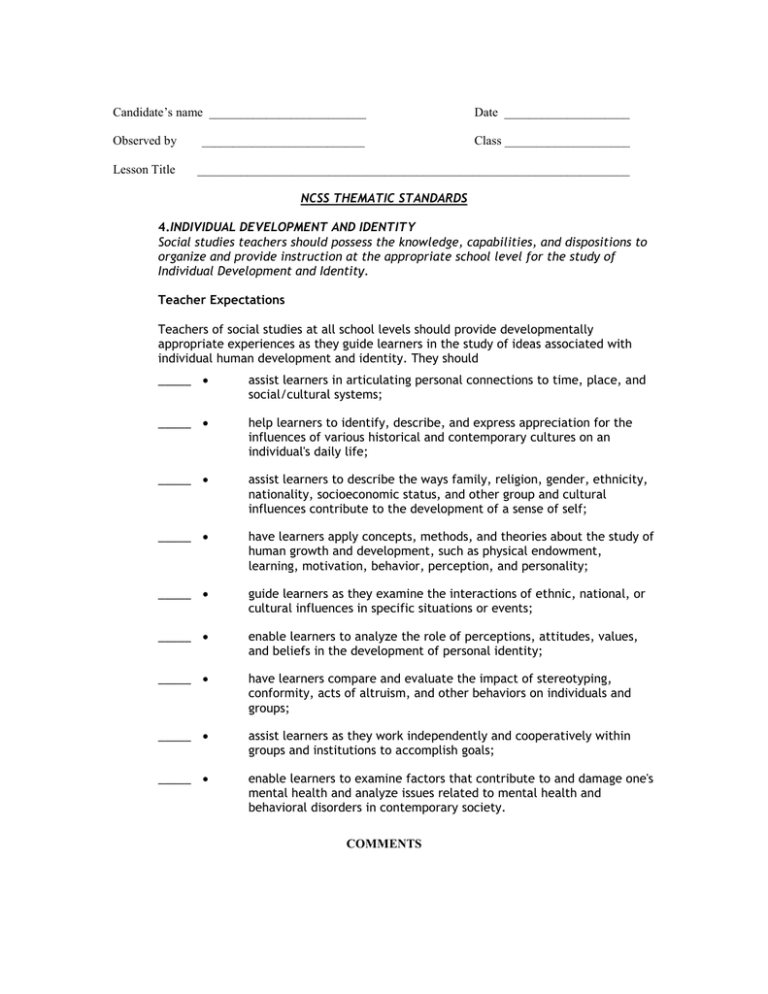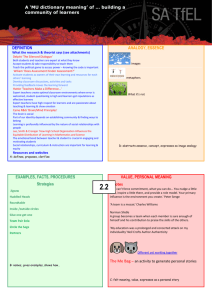Candidate’s name _________________________ Date ____________________
advertisement

Candidate’s name _________________________ Date ____________________ Observed by Class ____________________ Lesson Title __________________________ _____________________________________________________________________ NCSS THEMATIC STANDARDS 4.INDIVIDUAL DEVELOPMENT AND IDENTITY Social studies teachers should possess the knowledge, capabilities, and dispositions to organize and provide instruction at the appropriate school level for the study of Individual Development and Identity. Teacher Expectations Teachers of social studies at all school levels should provide developmentally appropriate experiences as they guide learners in the study of ideas associated with individual human development and identity. They should _____ assist learners in articulating personal connections to time, place, and social/cultural systems; _____ help learners to identify, describe, and express appreciation for the influences of various historical and contemporary cultures on an individual's daily life; _____ assist learners to describe the ways family, religion, gender, ethnicity, nationality, socioeconomic status, and other group and cultural influences contribute to the development of a sense of self; _____ have learners apply concepts, methods, and theories about the study of human growth and development, such as physical endowment, learning, motivation, behavior, perception, and personality; _____ guide learners as they examine the interactions of ethnic, national, or cultural influences in specific situations or events; _____ enable learners to analyze the role of perceptions, attitudes, values, and beliefs in the development of personal identity; _____ have learners compare and evaluate the impact of stereotyping, conformity, acts of altruism, and other behaviors on individuals and groups; _____ assist learners as they work independently and cooperatively within groups and institutions to accomplish goals; _____ enable learners to examine factors that contribute to and damage one's mental health and analyze issues related to mental health and behavioral disorders in contemporary society. COMMENTS







